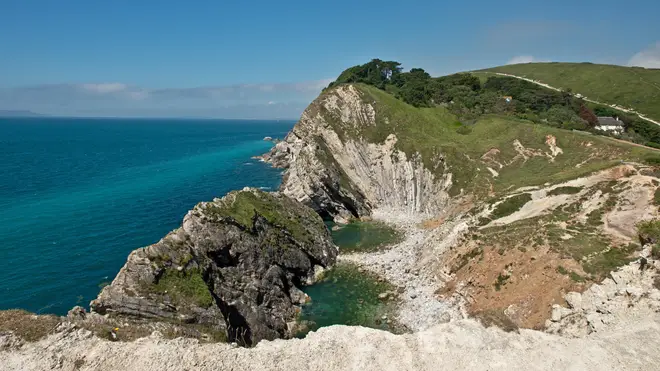
James O'Brien 10am - 1pm
19 July 2021, 19:07 | Updated: 20 July 2021, 17:02

The Met Office has issued its first ever "amber extreme heat warning" as parts of the UK are set to reach a sizzling 33C.
Their warning - which is similar to those issued when heavy rain or snow is forecast - covers a large part of Wales, all of south-west England and parts of southern and central England, and will remain in force until the end of Thursday.
"The high temperatures are going to continue through a large part of this week,” said Met Office chief operational meteorologist Steven Ramsdale.
"Many areas will continue to reach heatwave thresholds but the amber extreme heat warning focusses on western areas where the most unusually high temperatures are likely to persist.
Read more: Govt delivers 'Freedom Day' blow to nightclubs by introducing Covid passports from autumn
Read more: 'Pingdemic': NHS Covid app won't be tweaked to be less sensitive, PM confirms
The first ever Extreme Heat Warning has been issued for parts of South Wales, West Midlands, southern and southwestern England.#WeatherAware #Heatwave
— Met Office (@metoffice) July 19, 2021
Here is some more information about the warning 👇 pic.twitter.com/vuqckNUPJh
"There's a continuing risk of isolated thundery downpours late in the afternoons but most areas will stay dry until later in the week.
"Temperatures should begin to fall for most areas heading into the weekend, with some more unsettled conditions looking to develop."
It comes after temperature records were set over the weekend.
In England on Sunday, 31.6C was recorded at Heathrow, overtaking Saturday's record-breaking 30.3C recorded in Coton in the Elms, Derbyshire.

Sunbathers flock to Weymouth Beach in Dorset as weather warms up
Wales recorded 30.2C (86.36F) in Cardiff, compared with 29.6C (85.28F) reached in Usk, Monmouthshire, on Saturday.
But forecasters said temperatures are expected to climb further early this week, possibly reaching 33C (91.4F) in some western areas, but widely high 20s and low 30s elsewhere.
The Met Office launched a new Extreme Heat National Severe Weather Warning at the start of June 2021, with warnings to be issued based on the impacts of extreme heat.
Read more: July 19 'Freedom Day': Everything you need to know - explained
Read more: 11 arrested as anti-lockdown protesters and police clash at Parliament
Amber and red warnings can now be issued to inform the public of potential widespread disruption and adverse health effects.
Forecasters said the amber warning comes as the forecast continues to signal for unusually high temperatures for western areas in particular, as well as continuing high nighttime temperatures creating potential impacts for health.
Extreme heat can have health consequences, especially for those who are particularly vulnerable, and it can impact infrastructure, including transport and energy, as well as the wider business community.
During hot weather, there is often increased traffic near coastal areas, increased use of open water by the public, and an increase in wildfire risk.

Five deaths have so far been linked to warm weather, after a body was recovered from a lake in Sheffield and a man fell from rocks in Dorset.
Two teenagers died in Greater Manchester and Oxfordshire on Sunday, along with a man in his 50s in North Yorkshire.
Top ways to stay safe in the heat include drinking plenty of fluids and avoiding excess alcohol, keeping out of the sun between 11am to 3pm, walking in the shade, applying sunscreen and wearing a wide-brimmed hat.
Read more: Lewis Hamilton bombarded with racist abuse after 190mph Silverstone smash with Verstappen
Read more: Sadiq Khan urges public to keep wearing face masks after 'Freedom Day'
People are also urged to avoid physical exertion in the hottest parts of the day.
Chloe Brimicombe, a PhD heatwaves researcher at the University of Reading, said: "We're likely to see increased hospital admissions over the next few days, due to heat stress - a build up of body heat as conditions prevent people from cooling down, even at night - and other heat-related health issues.
"Vulnerable people do die. Outdoor workers can get long-term kidney disease. We can also see a rise in air pollution, which affects people's lungs."

Government must take effective action on climate change
Dr Rob Thompson, a meteorologist at the University of Reading, said: "Heatwaves are one of the weather extremes that are most easily linked to climate change which is already affecting us here in the UK.
"British heatwaves are already hotter and last longer, compared to just a few decades ago.
"The hottest day of the year in the UK is on average nearly 1C warmer now than the average in the period of the 1960s to the 1980s, and extended spells of warm weather last more than double the length.
"We can expect that extreme summer heatwaves of the type that can kill people in the UK will become a regular occurrence, hitting us on average every other summer by the middle of the century, under current trends of increasing emissions and warming."